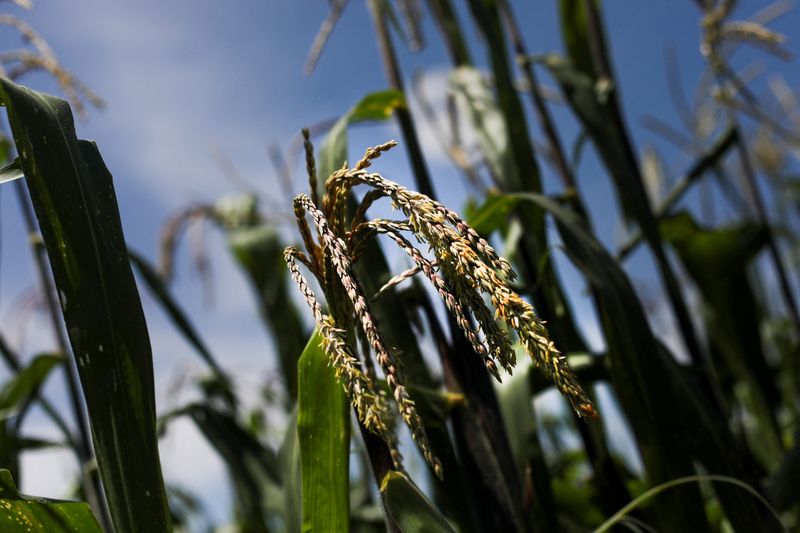By Cassandra Garrison and Adriana Barrera
MEXICO CITY (Reuters) - Mexico is considering direct agreements with farmers in the United States, Argentina and Brazil to secure non-genetically modified yellow corn imports, the country's deputy agriculture minister said, adding that a 2024 ban on GM corn would not be amended.
Deputy Agriculture Minister Victor Suarez told Reuters Mexico is on track to halve its U.S. imports of yellow corn, used primarily for livestock feed, when the ban comes into effect in 2024 via increased domestic production.
To make up the remaining gap, the country will look at making deals with farmers in other countries to grow non-GM corn and sell it to Mexico, Suarez said.
"There are many alternatives to importing non-GMO yellow corn from the United States," Suarez said in an interview on Wednesday.
It was the strongest indication yet from Mexico's Agriculture Ministry that the ban will hit yellow corn destined for livestock feed. It appeared to reverse assurances Agriculture Minister Victor Villalobos made to his U.S. counterpart last year, that Mexico would not limit imports of genetically modified (GMO) corn from the United States.
Mexico - one of the world's largest buyers of corn - currently imports some 17 million tonnes of U.S. grain a year, the vast majority of it yellow corn for animal feed.
The 2020 decree by Mexico President Andres Manuel Lopez Obrador aims to phase out GM corn and the herbicide glyphosate by 2024. Supporters say GM seeds can contaminate Mexico's age-old native varieties, and point to research showing adverse effects of glyphosate.
U.S. farm lobbies contend the ban will cause billions of dollars of economic damage to both countries, and have urged Washington to dispute it under the United States-Mexico-Canada Agreement (USMCA) trade pact.
MAIZALL, an international chamber representing growers in Argentina, Brazil and the United States responsible for more than 80% of global corn exports, has said it will not change its corn production methods to non-GM to accommodate Mexico. They voiced skepticism that Mexico can find enough non GM corn to meet its needs.
Suarez said he did not believe Mexico's decree presented any violation of the USMCA, saying the country was "under no obligation to buy and grow GM corn."
"We respect and care for (the trade pact), but the USMCA is not God, nor is it our constitution," Suarez said.
Mexico would possibly make announcements in the second half of 2023, Suarez said when asked whether Mexico would clarify the future of U.S. imports. He said there would be no modifications to the decree.
As part of Lopez Obrador's campaign to make Mexico self-sufficient in everything from energy to food, local corn production has slightly increased between 1% and 2% per year through free fertilizers, irrigation expansions and other incentives, mainly for small and medium-sized farmers.
Yellow corn imports had become more expensive than domestic production, another incentive for farmers to make the switch, Suarez said.

He was confident Mexico would make up about 8 million tonnes of corn it would no longer import from U.S. farmers after 2024. The government was working to make agreements with local corn growers to specifically increase yellow corn production to 6 million tonnes, he added.
"We do believe that we will achieve it," he said.
